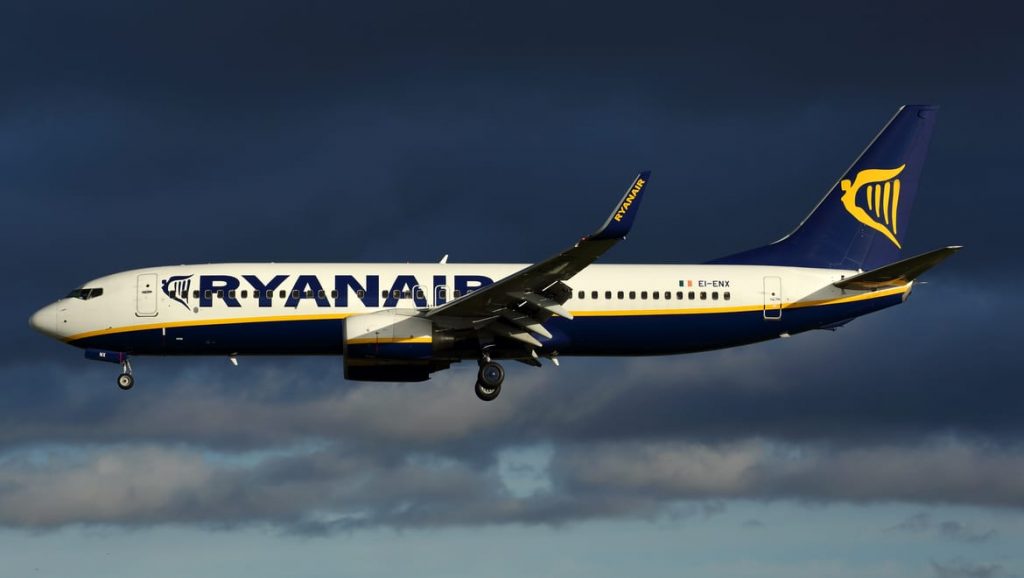
The fallout of one of the most widely discussed political crises the global aviation sector has faced continues, after Belarusian authorities flagged a false bomb threat onboard a Ryanair flight this weekend that saw the plane land in Minsk, and a political reporter onboard jailed.
According to data on Flightradar24, some airlines, including Ryanair, were quick to begin avoiding airspace over Belarus, while Latvian carrier airBaltic soon made an announcement that it too would not use the country’s airspace “until the situation becomes clearer”.
Dutch carrier KLM made a similar decision to temporarily halt flights over Belarus.
Notably, Belarus charges euro-denominated fees to use its airspace, up to US$500 per flight, with revenue that equates to millions of dollars each year.
Later, following a meeting on Monday evening, European Union leaders agreed to block any Belarusian airlines from flying across EU airspace or landing at EU airports, and also advised bloc members not to allow airlines to fly over Belarus’ airspace.
The EU said it would also consider a broader set of “targeted economic sanctions” against the country, as well as individual sanctions against those deemed responsible for the forced diversion of the Ryanair flight.
The UK’s Civil Aviation Authority made a similar announcement, that it had temporarily suspended the operating permit of Belarusian national carrier Belavia, and requested CAA-registered airlines to avoid Belarus airspace in the interest of safety.
Meanwhile, airlines and industry bodies have also continued their calls for a thorough investigation into the matter, which has tested a decades-old system of global co-operation, and could hit some roadblock along the way.
While the United Nations’ International Civil Aviation Organization (ICAO), of which Belarus is a member, can investigate the matter, it has no regulatory power.
The organisation has said it is “strongly concerned” by what Ryanair chief executive Michael O’Leary called a “state-sponsored hijacking”.
ICAO also noted that the move could have been in contravention of a key global aviation treaty, the Chicago Convention.
Despite what comes of an investigation, lawyers said that any probe would face a plethora of difficulties in attempting to work across numerous jurisdictions – considering the incident includes a Poland-registered aircraft, flown by an Irish carrier, between EU nations Greece and Lithuania, over non-EU member Belarus.
On Monday, World of Aviation reported that the global aviation industry expressed initial outrage over the deliberate diversion of a Ryanair flight from Lithuania to neighbouring Belarus on Sunday, which resulted in the arrest of a political journalist.
Reports suggest that Belarusian authorities flagged a false bomb threat onboard Ryanair flight 4978 bound for Lithuania, and sent a fighter jet to instead escort the plane to Minsk in order to detain a journalist who opposed the Belarusian government.
The plane, carrying around 170 people from 12 countries, was just minutes away from crossing into Lithuanian airspace when it was suddenly diverted to the Belarusian capital, escorted by a Soviet-era MiG-29 fighter jet.
Upon landing, authorities took journalist Roman Protasevich into custody. Protasevich is reported to have become frantic in the plane’s cabin when the pilots announced the last-minute diversion to Minsk, and later remarked: “I’ll get the death penalty here”, as authorities removed him from the scene.
The 26-year-old journalist was wanted in Belarus on extremism charges, following reporting he produced for Poland-based news service NEXTA, which broadcast footage of mass protests against Belarusian President Alexander Lukashenko last year.
Protasevich stands accused of organising mass riots and inciting social hatred, allegations that he denies.
The remaining passengers onboard flight 4978 were forced to wait seven hours on the ground, before the plane finally took off again for Vilnius, Lithuania.
The move was heavily condemned by nations, organisations, and airlines around the world, with some world leaders labelling the incident as a “hijacking” or “act of piracy”, and in violation of international aviation laws.




